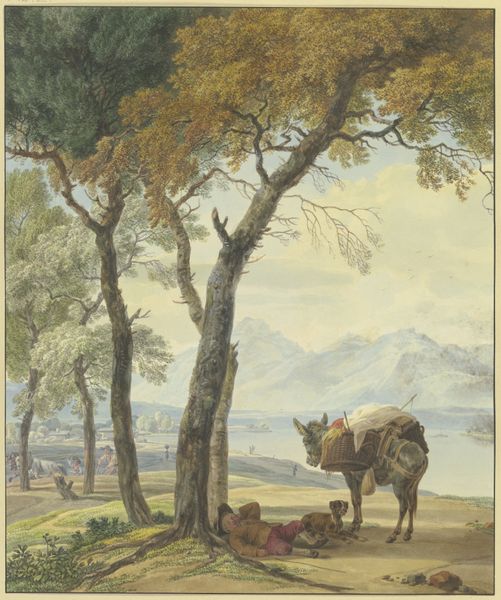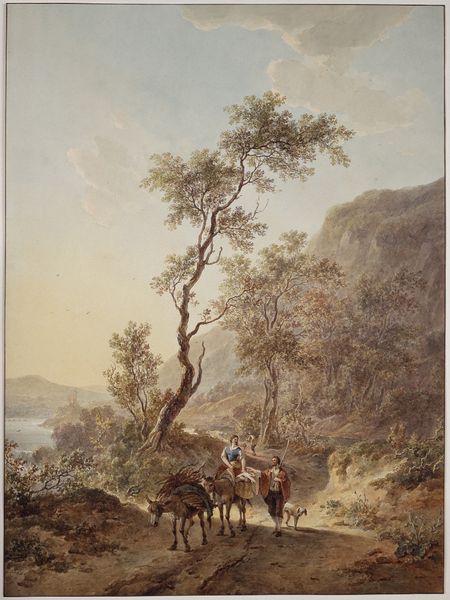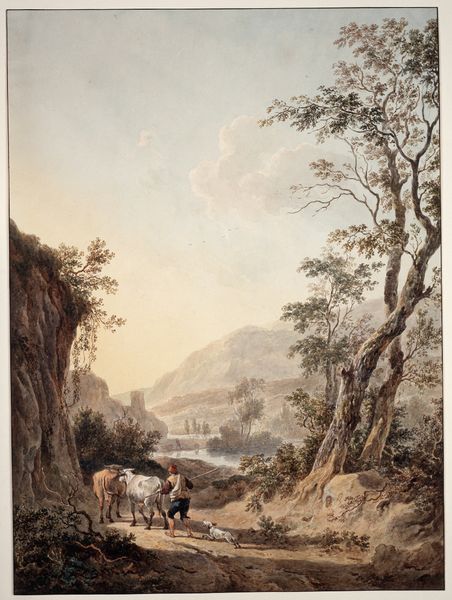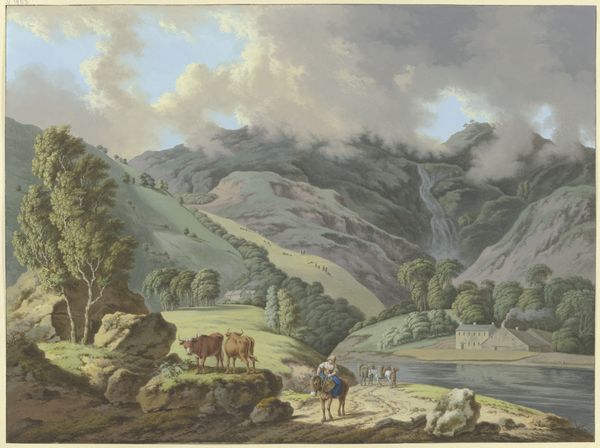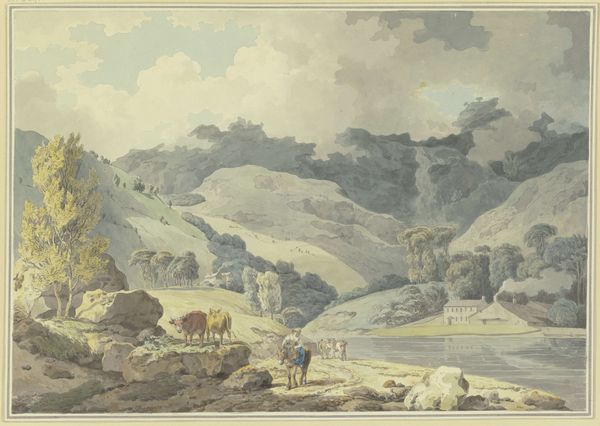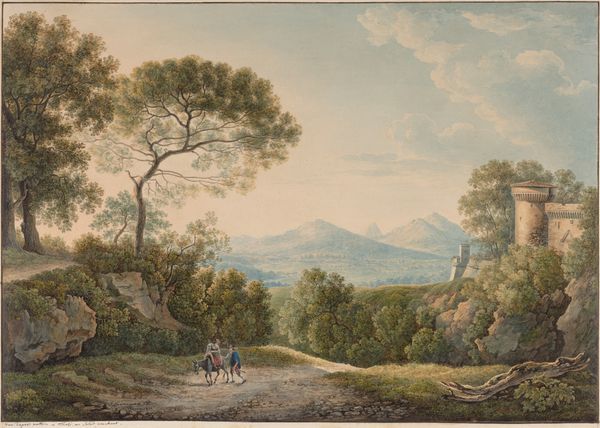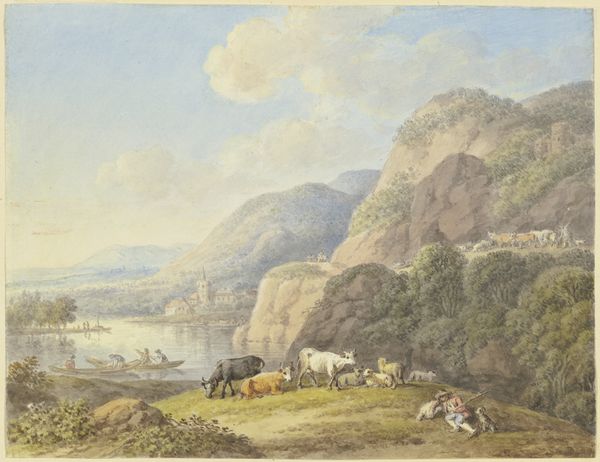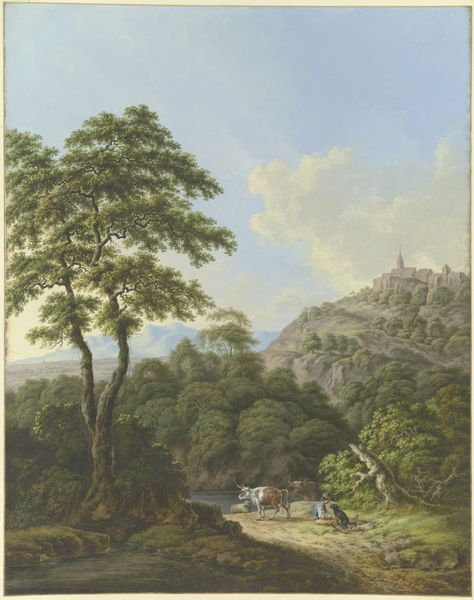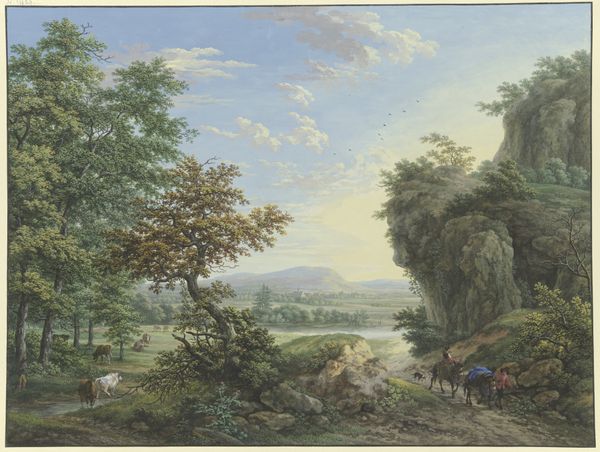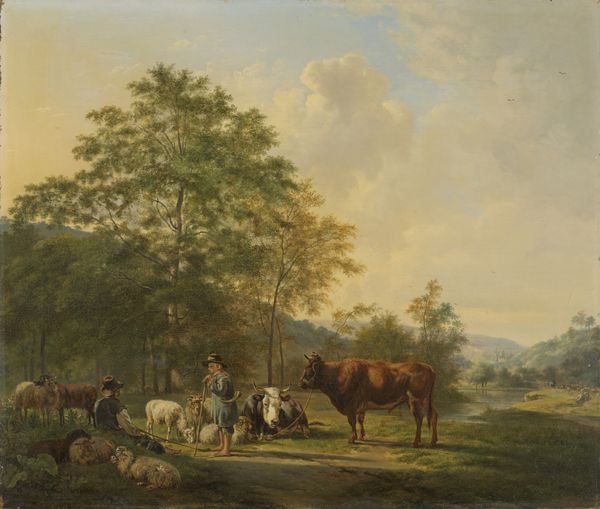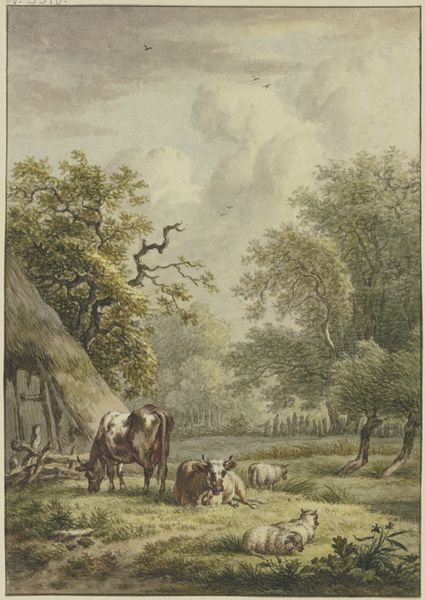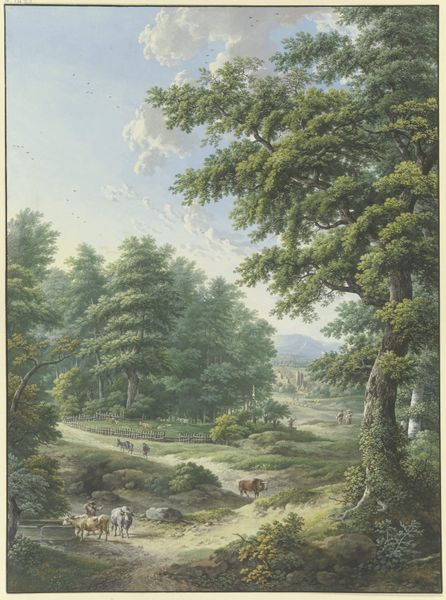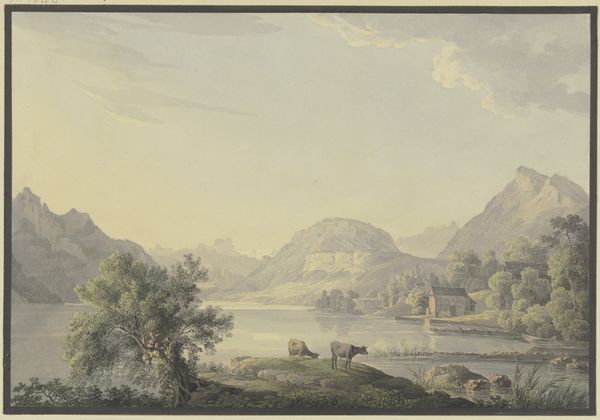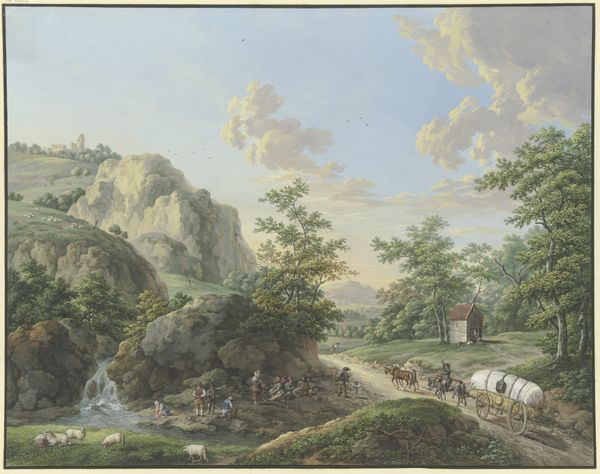
drawing, coloured-pencil, painting, gouache, paper, ink
#
drawing
#
coloured-pencil
#
painting
#
gouache
#
landscape
#
figuration
#
paper
#
ink
#
coloured pencil
#
romanticism
#
watercolor
#
realism
Copyright: Public Domain
Curator: Oh, what a scene. My initial reaction is one of exhausted serenity. There’s something so calming, yet poignant about the composition. Editor: I see that too. This artwork is entitled *Resting Farmer with his Horse next to the Ploughed Field*. It’s by Wilhelm von Kobell and located at the Städel Museum. Curator: Von Kobell really captured the human and animal spirit here. The weariness of labor, sure, but also that quiet, shared moment under the generous shade of the trees. It’s more than just a farmer taking a break. I find the horse's posture really affecting – almost drooping with a shared fatigue. It speaks to their partnership. Editor: Absolutely. And beyond the immediate image, we can see this as a moment reflecting a wider economic structure. Consider how the ownership of land and animals dictated social hierarchies. Even in a scene of rest, the power dynamic is palpable. Curator: Right, but there’s also this real sense of beauty – the gentle hues, the watercolour bleeding into paper – he captured something fleeting about their connection. Do you think the “romanticism” tag does it justice? To me it is much more nuanced. Editor: Well, that tag directs us to a fascinating question. Does it glorify labour by selectively erasing the brutal reality faced by peasant communities? Where do you think the artist situated himself in relationship to this landscape? Curator: Perhaps outside of it all together, capturing a picturesque image of an honest man. You're making me rethink everything I just said. The way you put it really highlights the complexities of depicting labor...and I love how this piece is somehow speaking volumes about power and the politics embedded in it. Editor: And at the end, that is art's purpose: to trigger conversations about histories, and contexts that art embodies in direct and indirect ways.
Comments
No comments
Be the first to comment and join the conversation on the ultimate creative platform.
